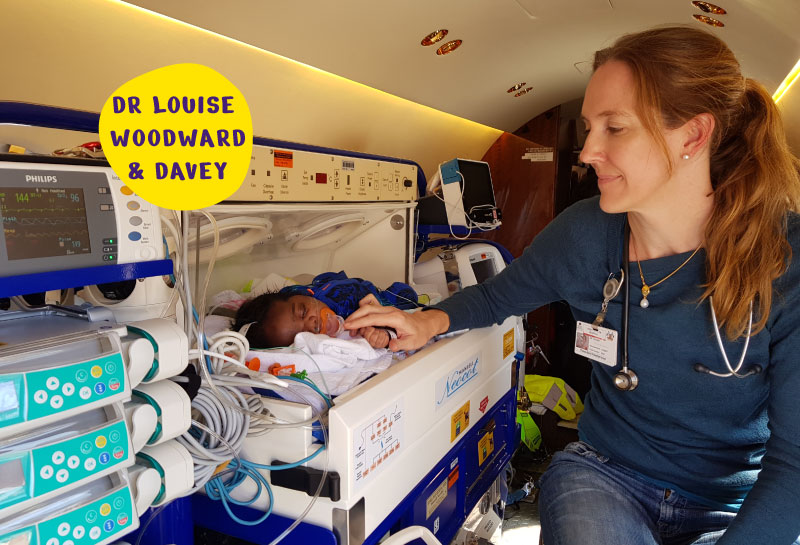It was a wild day in March with cyclone Marcus ravaging the city when a baby boy entered the world at Royal Darwin Hospital (RDH). An emergency code rang out. He had been born with no signs of life.
His young mother had been struck down with an infection and then transferred from her remote community to Darwin for the birth. By the time she arrived, she was critically ill. The tyrannies of distance, social disadvantage and a cyclone combined to cause two lives to hang in the balance.
In the operating theatre, the team worked hard to stabilise the newborn baby. His lungs were so severely damaged by a condition called Meconium Aspiration Syndrome that he was unable to breathe on his own. He was brought to the Neonatal Intensive Care Unit (NICU) and placed on a ventilator donated by the Humpty Dumpty Foundation.
His parents sat by his side for the next 2 weeks as he battled for life. Despite the best efforts of the medical and nursing teams, his condition continued to deteriorate.
He was so unstable that even changing his nappy caused life-threatening instability. His only hope for survival was a special type of lung therapy available only at the Royal Children’s Hospital in Melbourne, 4000 km away.
Fortunately for him, the Humpty Dumpty Foundation had just donated a sophisticated transport incubator to RDH.
The equipment had been carefully selected to enable us to provide intensive care in flight, safely transporting the sickest babies' long distances.

When the team at the Royal Children’s Hospital discovered we had a transport incubator with a high-frequency ventilator, they felt it might be possible to transport the baby to Melbourne. Whilst the risks would be great as a mission such as this had never been attempted, there was nothing to lose.
It was decided that Davey get transported in a combined operation between the Darwin and PIPER transport team (from the Royal Children’s Hospital) using the Humpty Dumpty transport incubator. Over 3 days, the mission was carefully planned. A special medical Lear jet was sourced, and all details of the operation finalised. The chance of success was felt to be 50:50, even if all went well.
On the day of the transport, we arrived at RDH early to prepare the baby for the trip. It took us 8 hours to stabilise Davey enough to move him into the transport incubator. We were worried. His parents spent the morning with him, unsure if it would be his last. Their bravery was incredible. The trust they were bestowing on us was humbling, and I hoped that it was well-founded.
The team from Royal Children’s Hospital arrived, and we got to work. The impossibility of the situation no longer entered our minds. We had a job to do, and we had the best equipment available to do it. Our roles got allocated, and we talked through all possible situations we might face. There was no room for error.
We were farewelled from RDH by his parents and a team of 20 local medical and nursing staff. The high-frequency ventilator was doing its job; Davey's vital signs were good. The plane taxied onto the runway and took off. This was a high-risk time, but our precious cargo remained stable.
The flight went smoothly, and thanks to the world-class transport incubator, we were one incredibly large step closer to saving his life. We had also made history by achieving the longest neonatal transport in Australia using a high-frequency ventilator.
Over the next 4 weeks at the Royal Children’s Hospital, Davey's condition gradually improved, and he was soon able to breathe on his own. He was ready to return home to the Northern Territory.
He was 6 weeks old when we flew back to Melbourne to pick him up. He greeted us with a huge smile when we gently placed him in the transport incubator. It was as if he knew that it had saved his life. The flight back to Darwin was exhilarating. We were hours away from delivering a healthy baby back to his worried parents, something that seemed impossible only a month ago.
Davey spent another 4 weeks at RDH before being able to return home to his community. Thanks to the Humpty Dumpty Foundation, he is now a happy, healthy young boy.
The future is looking brighter for critically ill babies in the Northern Territory. The high-tech transport incubator donated by Humpty and its generous supporters will enable our medical staff to perform more miracles and groundbreaking feats with an aim to save every precious life, no matter where they live or how sick they are.
By Dr Louise Woodward
Paediatrician and Director of Neonatal Transport, Royal Darwin Hospital